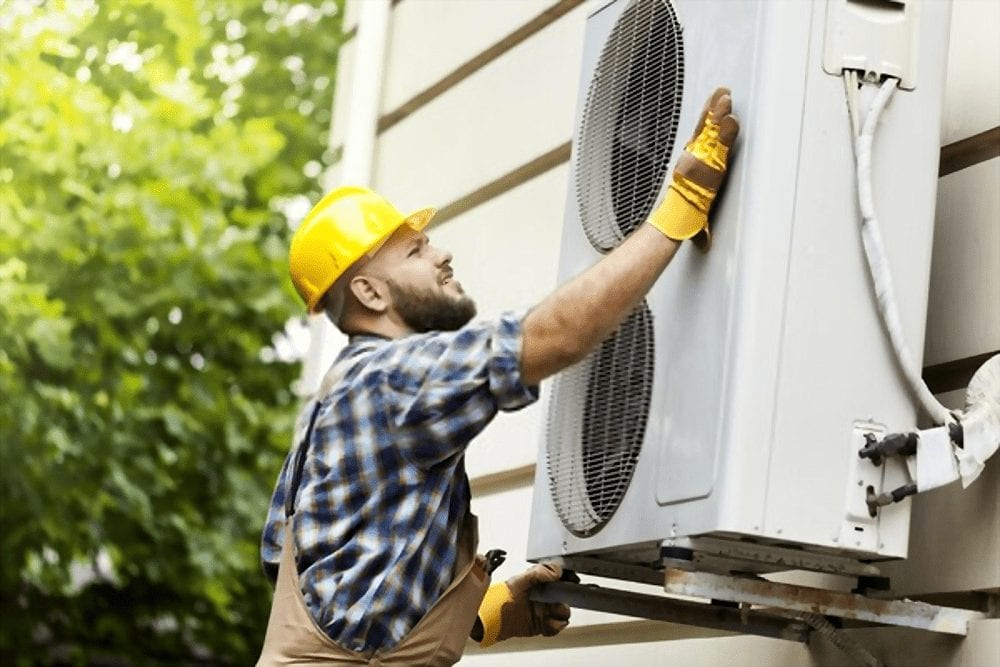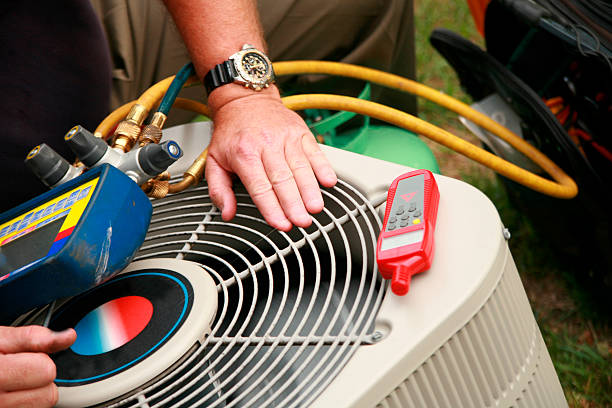The Importance of A/c Installation: Secret Factors To Consider for a Comfortable Indoor Setting
The setup of a Cooling and heating system is a critical component in attaining a comfy and energy-efficient indoor environment. Factors such as the suitability of the system for specific structure requirements, right sizing to circumvent inefficiencies, and the competence of professionals for a high quality installation play crucial duties. The fostering of advanced technologies can dramatically improve system performance.
Choosing the Right System

When choosing a cooling and heating system, it is critical to examine the capacity called for to efficiently warm or cool down the room without overworking the system, which can result in boosted wear and functional prices. Consulting with a professional a/c service provider can give valuable insights into selecting a system that lines up with both the expected usage and the building layout patterns of the structure.
Additionally, considering the integration of smart technology can enhance system management and monitoring, offering greater control and potential cost financial savings. By meticulously assessing these factors, one can ensure the option of a HVAC system that not only fulfills instant requirements but also adds to lasting functional sustainability and passenger comfort.
Understanding Energy Efficiency
Recognizing power performance is crucial when taking into consideration a Cooling and heating setup, as it directly influences both the ecological impact and the operational prices of the system. The effectiveness of a Heating and cooling system is normally suggested by ratings such as SEER (Seasonal Energy Efficiency Proportion) for air conditioners or AFUE (Yearly Gas Usage Effectiveness) for furnaces.

Buying an energy-efficient a/c system not only translates to cost financial savings yet additionally adds positively to environmental preservation by decreasing greenhouse gas exhausts. In addition, lots of jurisdictions offer incentives or rebates for the setup of high-efficiency systems, better enhancing their financial allure.
When evaluating power performance, consider advanced attributes such as variable speed electric motors, clever thermostats, and zoning capacities. These advancements enhance the system's capacity to adapt to varying need, consequently optimizing power use. It is crucial to talk to heating and cooling experts who can offer insights into the most effective options customized to certain climate conditions and use patterns, making certain optimal efficiency and convenience.
Significance of Correct Sizing

On the other hand, an undersized a/c system will have a hard time to reach the wanted temperature, particularly throughout severe climate condition. This can lead to constant operation, leading to greater energy costs and potential overheating of system elements. Additionally, poor sizing can bring about irregular temperature circulation, causing certain areas of a structure to be also great or as well warm.
To achieve the appropriate sizing, a thorough lots computation is vital. This involves analyzing different variables such as the building's square video, insulation levels, window kinds, and regional environment conditions. By properly figuring out the home heating and cooling down demands of an area, a/c professionals can advise systems that guarantee reliable operation, minimized power intake, and improved interior comfort.

Ensuring High Quality Installation
A smooth A/c setup is the foundation of a system's longevity and efficiency. This expert should possess in-depth knowledge of varied systems and be skilled at examining the particular needs of the structure.
Correct setup goes beyond mere positioning of devices. It involves precise calibration to make certain ideal air flow, efficient power usage, and uniform temperature circulation. This includes exact ductwork setup, guaranteeing links are leak-free and safe, which is important for maintaining system efficiency like this and interior air high quality.
Moreover, the execution of sophisticated diagnostic tools during installment can identify prospective issues early, stopping costly fixings and prolonging the life-span of the system. The specialist should likewise ensure that all elements are suitable and that the system abides by his explanation local building ordinance and regulations.
Routine Upkeep Practices
When the structure for a high-performing cooling and heating system is established through high quality setup, the emphasis must change to normal upkeep techniques to ensure continued efficiency and reliability. Routine maintenance not only prolongs the life expectancy of the system yet additionally boosts interior air quality, lowers energy intake, and prevents expensive repair services. Crucial upkeep jobs consist of routinely altering air filters, cleaning up evaporator and condenser coils, and checking the system for leakages or blockages.
Air filters should be replaced or cleaned each to 3 months, relying on use and ecological aspects. This basic task can significantly improve air flow and system efficiency (air conditioning installation Brownwood TX). Cleansing the evaporator and condenser coils stops dust build-up, which can hinder heat absorption and cooling capacity. Additionally, specialist service technicians ought to evaluate the system each year, looking for refrigerant degrees, electrical connections, and general system efficiency.
Attention to ductwork is additionally crucial; securing and cleansing air ducts on a regular basis prevents air loss and contamination. Carrying out a maintenance routine makes certain that minor problems are addressed before they intensify, safeguarding the system's operational honesty. By adhering to these maintenance techniques, homeowners can enhance their cooling and heating system's performance and preserve a comfortable indoor atmosphere year-round.
Conclusion
By selecting an appropriate system customized to details structure needs, recognizing power performance, and ensuring proper sizing, inadequacies can be lessened. The participation of proficient service providers guarantees top quality setup, while the integration of innovative innovations improves system performance and surveillance.
A number of types of A/c systems are offered, consisting of split systems, crossbreed systems, duct-free systems, and packaged home heating and air systems, each with distinctive advantages and restrictions.
Understanding power effectiveness is important when taking into consideration an A/c setup, as it straight influences both the ecological impact and the functional costs of the system. The efficiency of a Heating and cooling system is typically shown by rankings such as SEER (Seasonal Power Effectiveness Proportion) for air conditioners or AFUE (Annual Gas Usage Efficiency) for heaters (Plumber in Brownwood TX).As soon as the structure for a high-performing Heating Read Full Report and cooling system is developed via quality installation, the emphasis ought to move to normal upkeep techniques to ensure continued effectiveness and integrity. Additionally, professional technicians ought to inspect the system yearly, checking for refrigerant levels, electric links, and total system efficiency